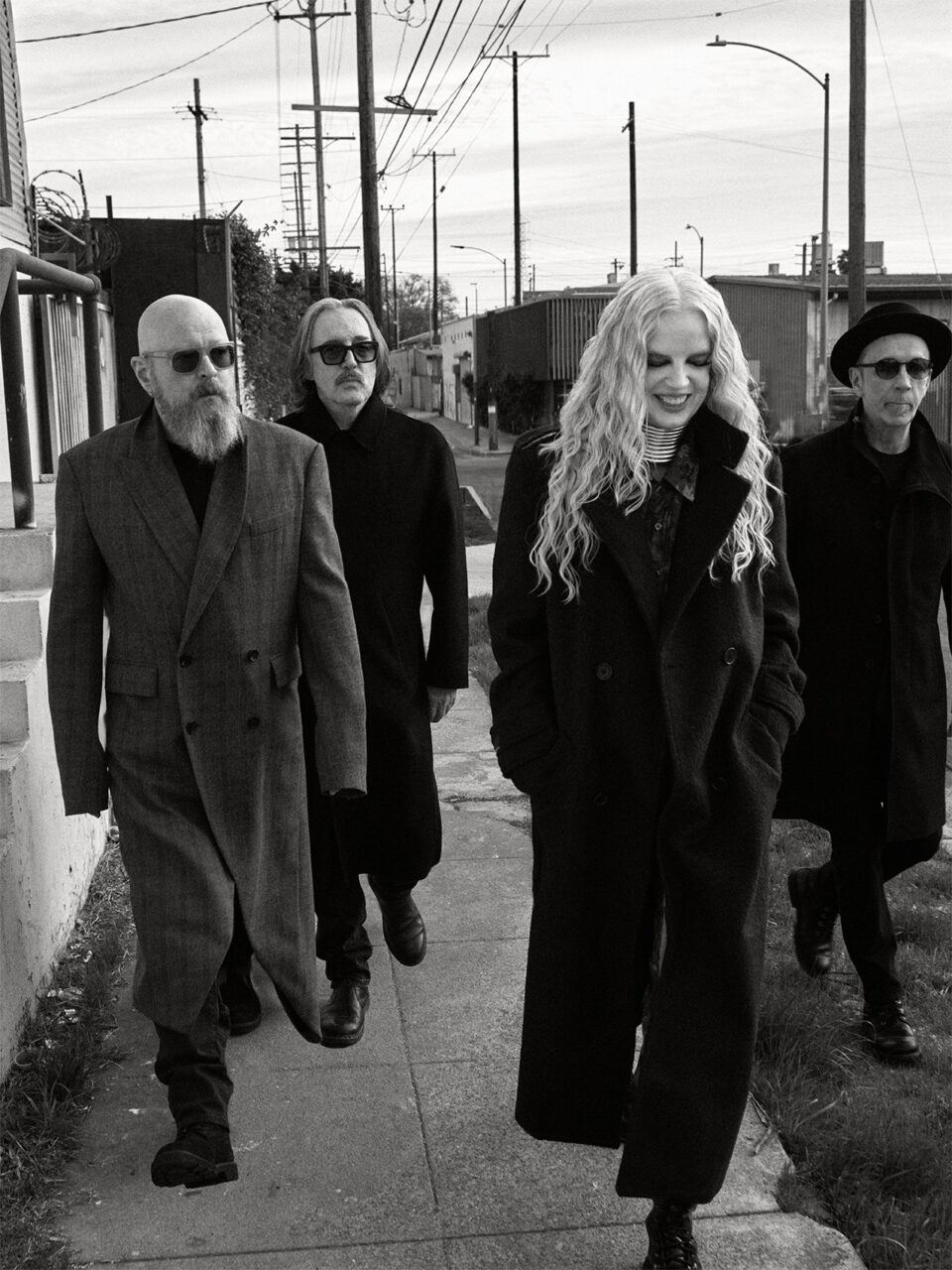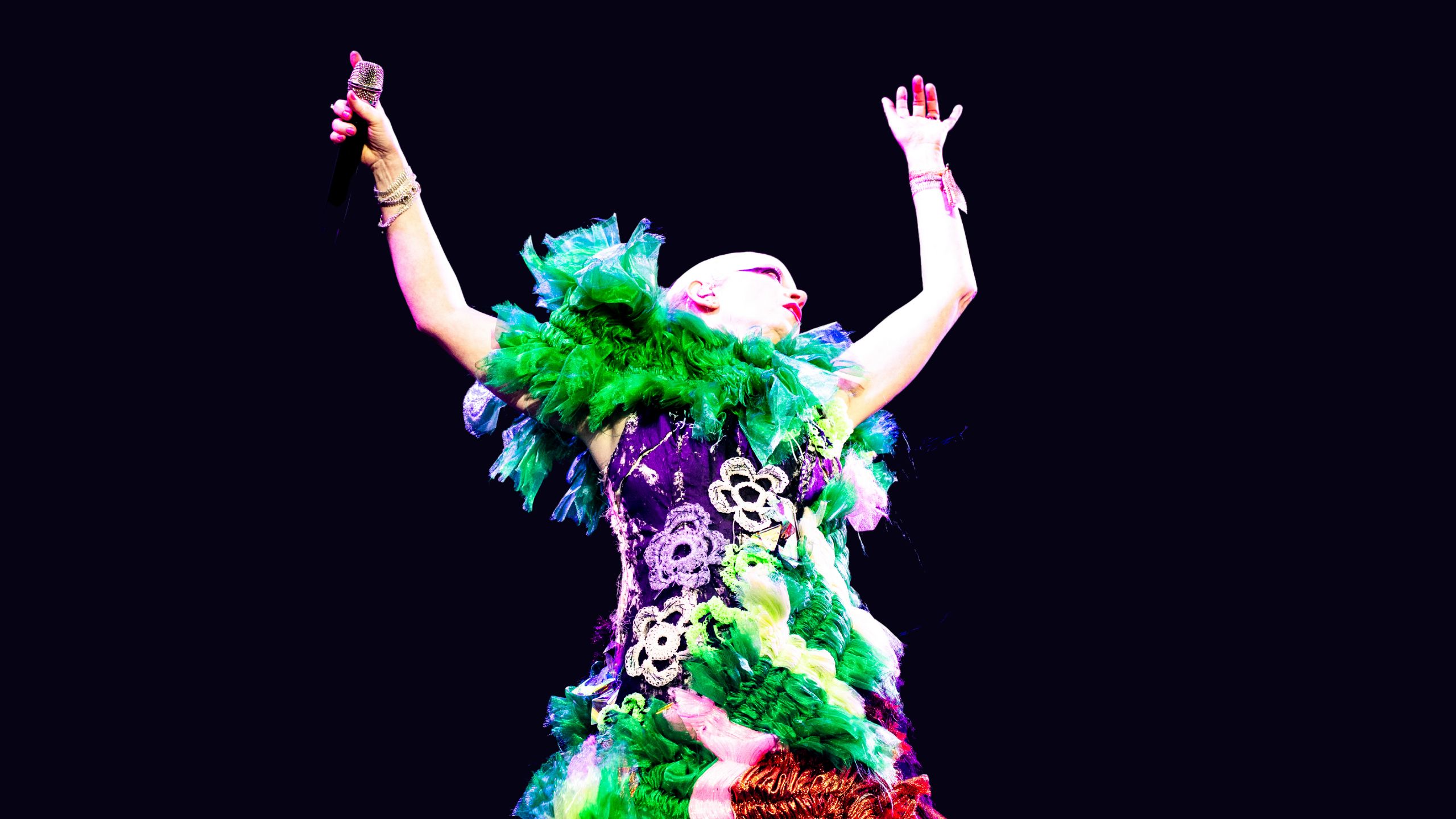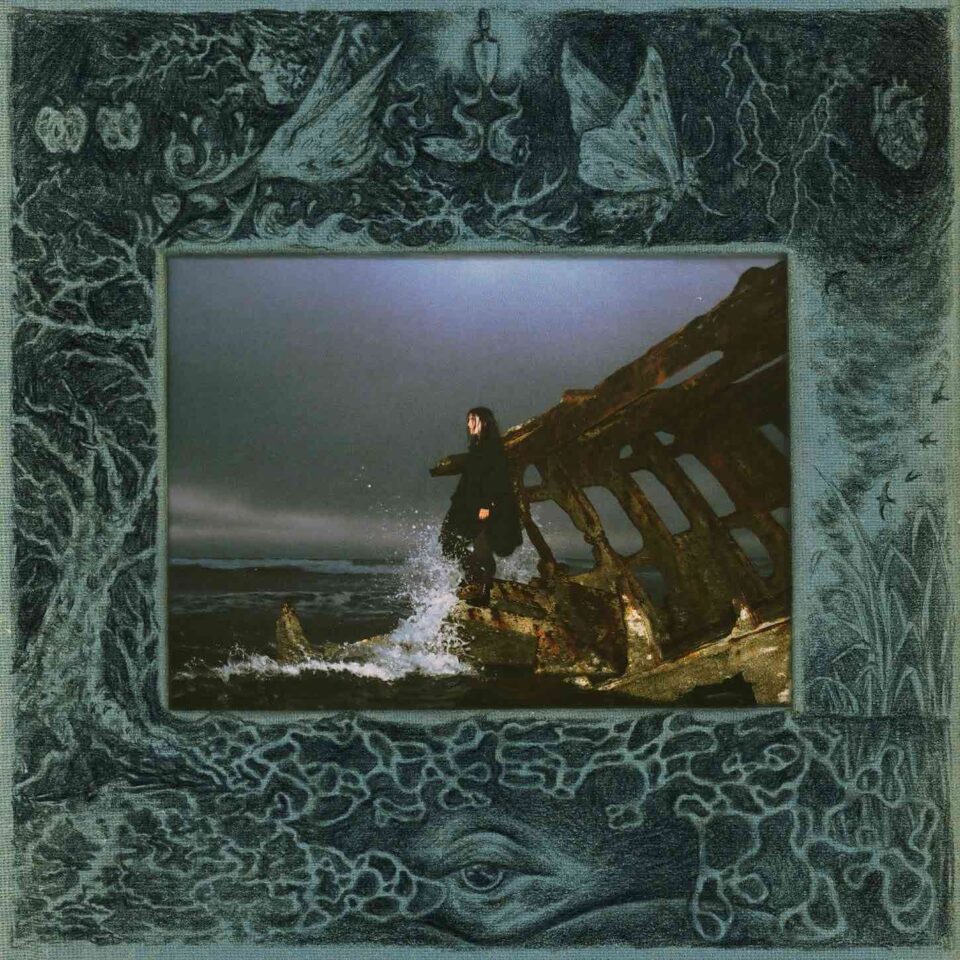2025 marks 30 years since Garbage released their seminal self-titled debut album, which immediately established them as one of the premier alt-rock bands of the 1990s with hits like “Stupid Girl,” “Vow,” and “Only Happy When It Rains.” With subsequent releases, they’ve remained popular on an international level, selling nearly 20 million albums to date. This week, the band will add to this tally when they put out their eighth studio album, Let All That We Imagine Be the Light.
Over the decades, Garbage have managed to become that rare kind of rock group that has harmoniously remained together, with all original members intact. As vocalist Shirley Manson told me during a recent call from her native Scotland, the bond that she has with her bandmates (drummer Butch Vig and guitarists Steve Marker and Duke Erikson) was particularly crucial as they created this latest album—and they’re determined to continue enjoying their time in this band for as long as they can.
To support the album, the band will perform at a handful of festivals (starting with the prestigious Cruel World in Pasadena earlier this month), then tour across North America from September through early November. They’ll hit 31 cities in what will be their first headlining tour in nearly 10 years. In the meantime, we caught up with Manson to shed some light on how this release differs from those that came before it, as well as her realistic outlook on the band’s future.
How did you decide that it was the right time to do another headlining tour?
Because we’ve got a new record coming out, and we don’t know how much longer we can go on all in one piece—as the original band members, all healthy. Our generation are dying, you know. So we’re realists. Each time we step up to the plate now, I think it’s always in the back of our minds, “Will we ever get back here?” It’s not impossible, but it’s unlikely that we’ll do it again [after this]. It’s like, “Let’s just go out and have an amazing time and support our new record and play all the music that everybody loves.” And hopefully we’ll get to do it again, but there’s no guarantees.
This is your eighth album, so you’re used to release dates by now, but how do you feel as you’re coming up on this particular one?
I don’t really think about release dates in the same way that I used to. They used to feel like some kind of major event, that somehow my life was going to change. Now I just see it as a real privilege to get to complete a piece of work and then share it with people who are interested in hearing what we’ve been working on. It’s kind of that simple for me, at this point.
What do you think it is about your music that’s made it possible for you to have this lengthy career, with such loyal fans?
I have no idea how we’ve survived and others haven’t. I mean, obviously there’s good chemistry in the band. Everybody’s been kind to one another. Even at times when there’s clearly strain, we’ve somehow managed to treat each other with respect. It’s so easy to set fire to a band: you can build a band for years, and then kill it in five minutes. We’ve not indulged in that kind of destruction. So I think that’s helped—the way we’ve managed ourselves, the way we’ve loved one another. And I think we’ve enjoyed unbelievably good fortune and good health, which is another huge component to any long career.
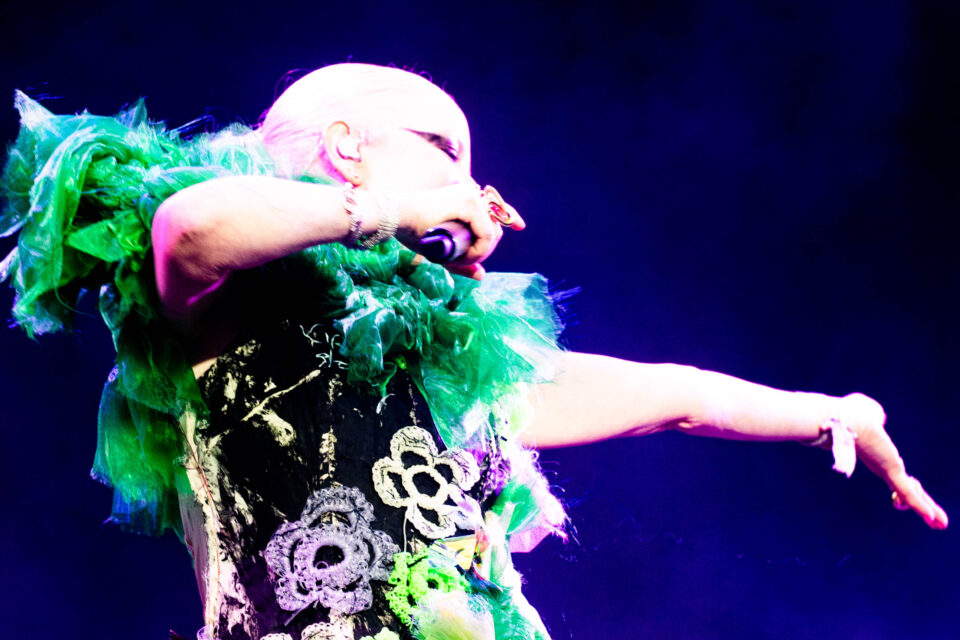
Garbage
“Each time we step up to the plate now, I think it’s always in the back of our minds, ‘Will we ever get back here?’”
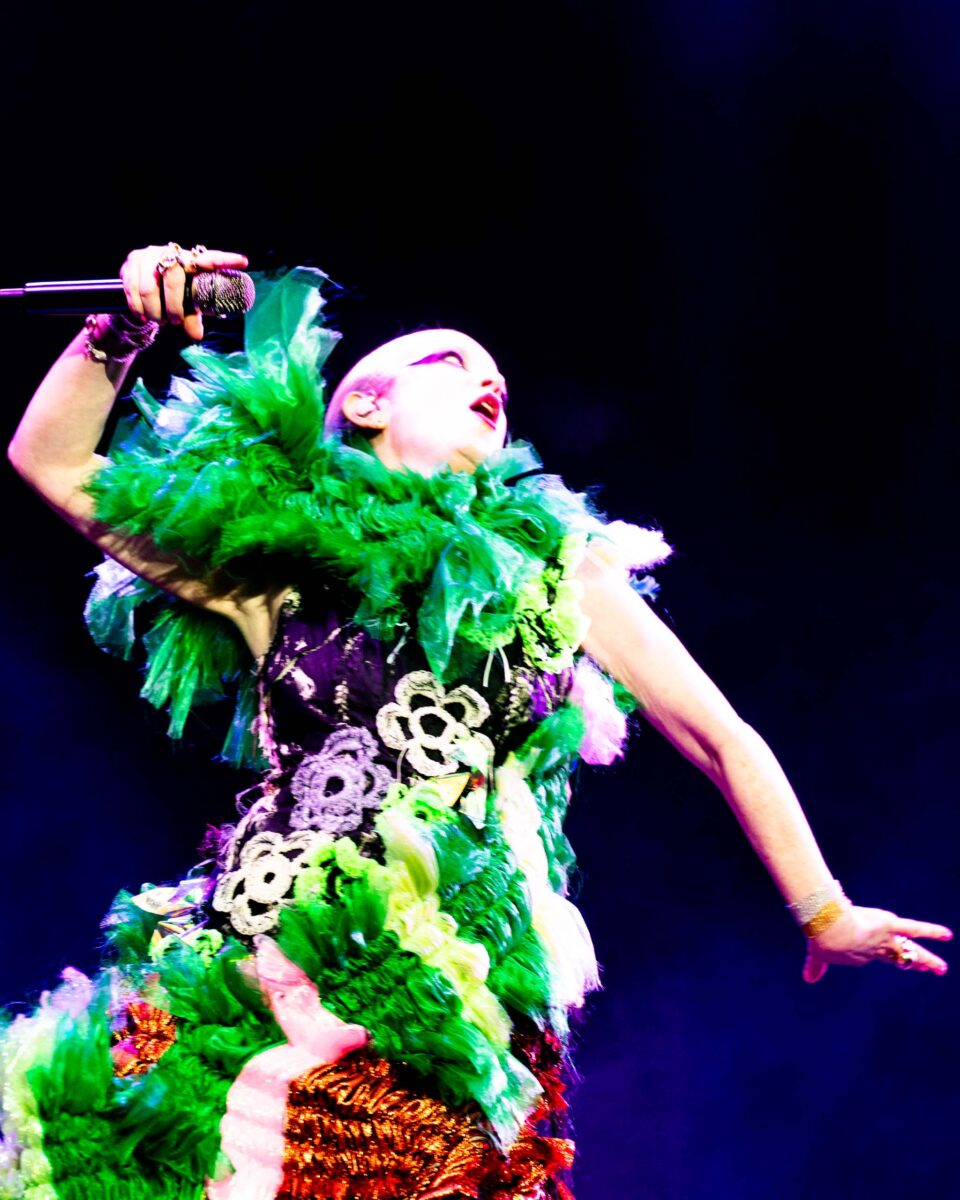
Garbage
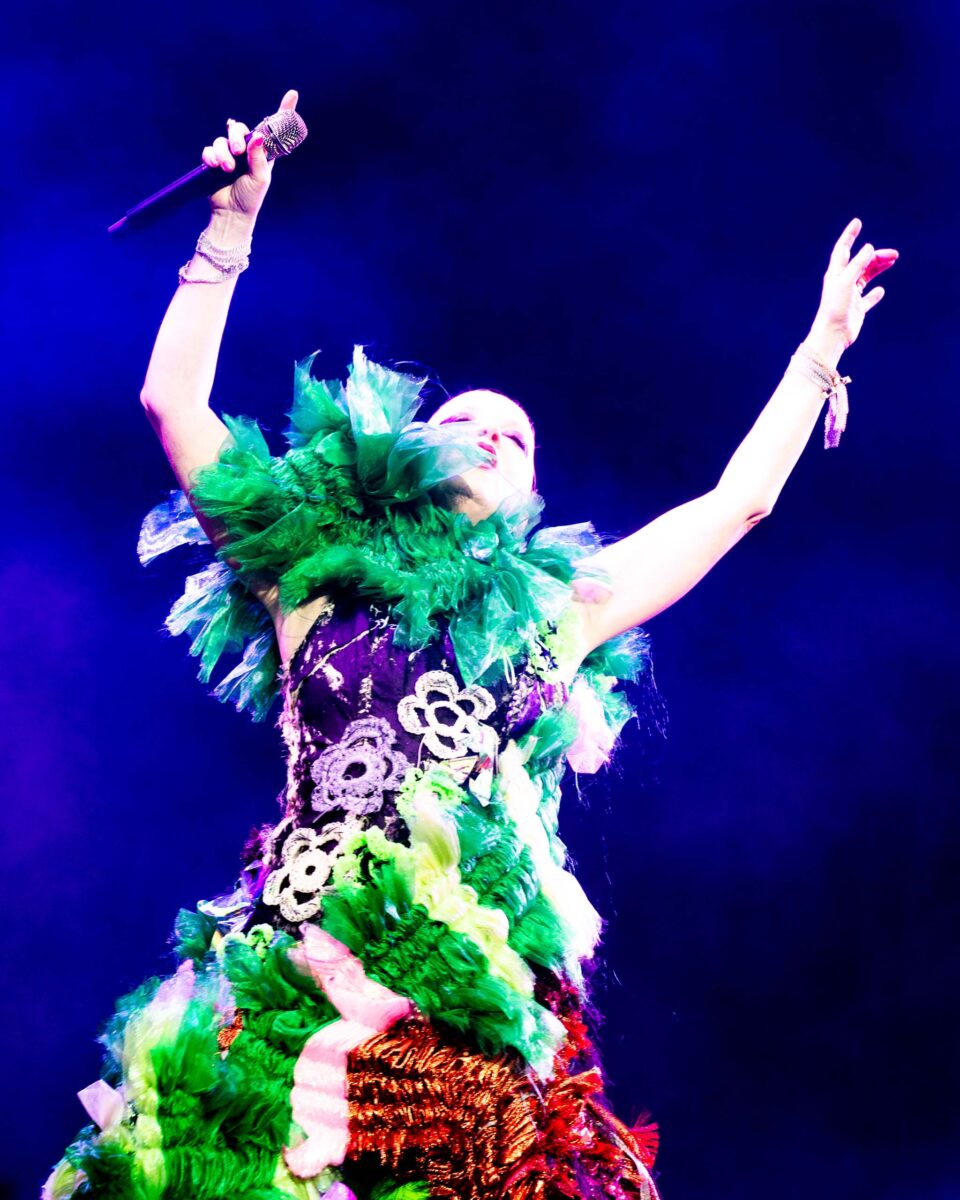
Garbage
Have you had the same working process the whole time? Or, with this new album, did you try anything different with the way you approached writing or recording?
When you’ve been together for 30 years, to try and keep things fresh is hard. That’s one of the biggest challenges, because you can fall into routines and patterns and predictability. In this case, I’d had two major surgeries. The record got made basically between these two surgeries, and it forced us to work differently than we ever had before. I was bedbound for a lot of the time, and I was on pain management, so I was kind of out of it. I had severe brain fog at some point, and couldn’t go into the studio, so the band worked on instrumentals that they sent to me via email. I worked remotely myself without them, and they worked remotely without me, until the songs basically had taken shape. Then we got together and worked on refining. We’ve never done that before. It was good, because it encouraged different ways of thinking. The musical ideas that they sent me were sort of cinematic, which was not what I expected, and that in turn influenced how I wrote on top of it.
Given that this album came out of such a challenging time, it’s interesting that it seems to have an uplifting, hopeful quality to it. Would you agree with that?
Yeah, I definitely do agree with that. I was forced into thinking differently because I’d lost my dog, which fucked me up really bad. Like, it really killed my joy. And also, I was dealing with a lot of physical problems. I realized that I was in peril—I could feel a depression coming on. I knew that if I didn’t change the way I was thinking about things and reframe them, I pretty much was going to die of a broken heart. I realized if I stayed in the place that I’d been existing in on our previous record [2021’s No Gods No Masters], which was full of outrage and dismay, I think I really would’ve fallen off the edge of a cliff. So I needed to employ discipline, and reached for things that were sort of outside myself, bigger than myself, in order to get myself out of bed—literally.

“I realized if I stayed in the place that I’d been existing in on our previous record, which was full of outrage and dismay, I think I really would’ve fallen off the edge of a cliff.”
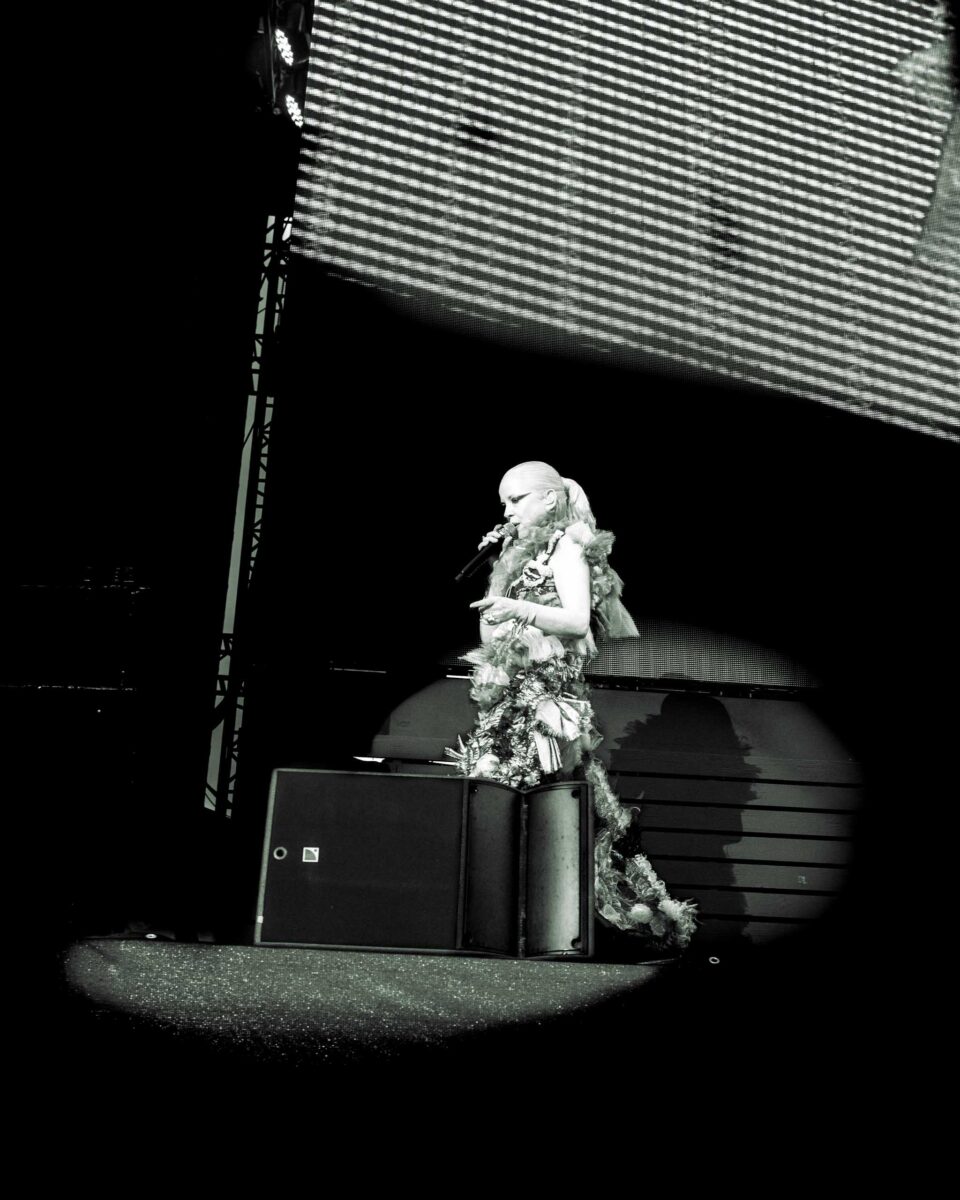
Garbage
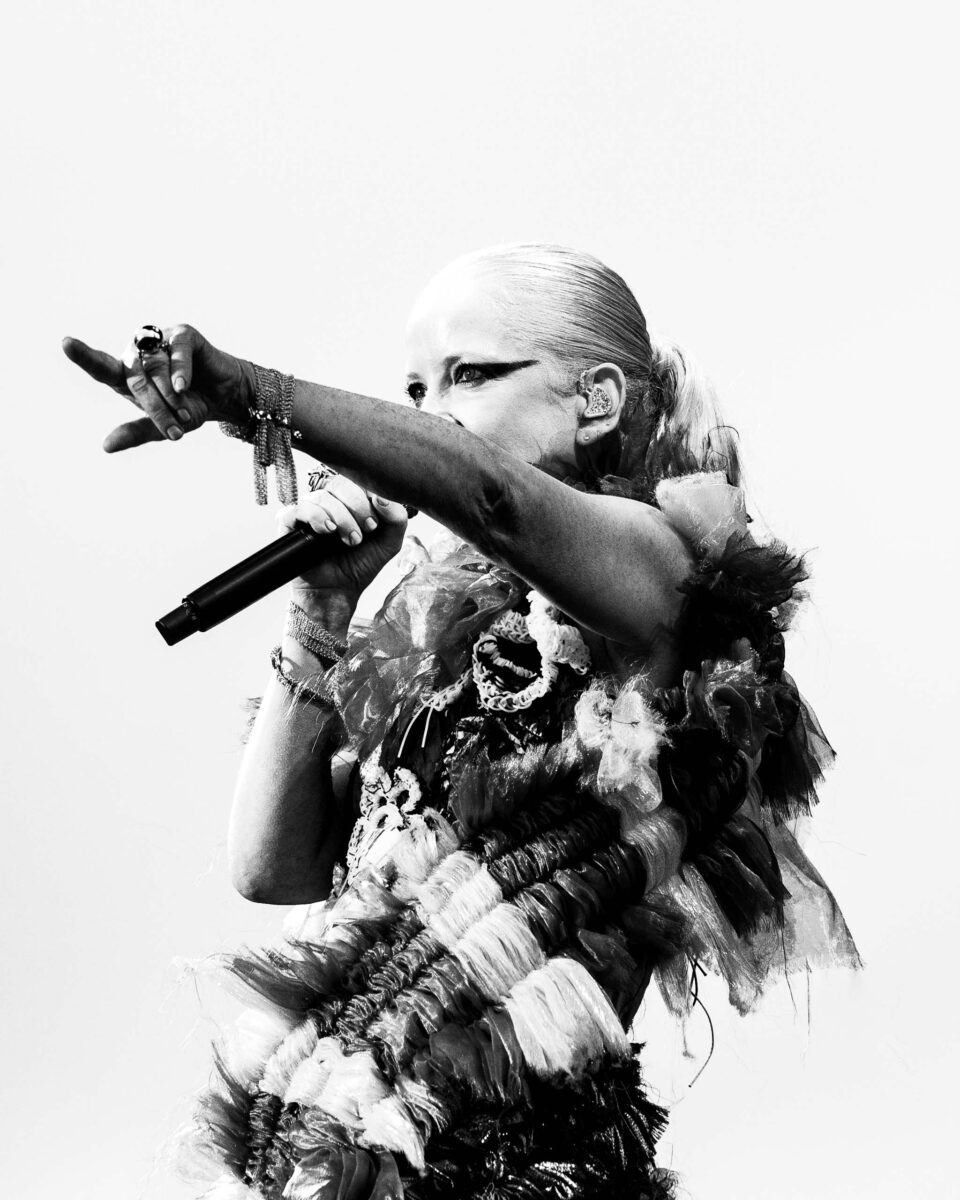
Garbage
In addition to your singing, your lyrics have always been a very distinctive feature of this band. How did you learn to write like that?
I had an amazing English teacher, Miss Mitchell, who died last year at the age of 101. She really encouraged me to write when I was young. And my father is also a huge, huge fan of poetry and literature. He’s a member of the Robert Louis Stevenson Society here in Edinburgh. So I’ve just been encouraged to immerse myself in literature my whole life, and the love of writing. I love words, and above all else, I love communication. The idea of trying to touch another human being and have some kind of connection, that’s important to me.
So why become a singer? Why not become a novelist or some other kind of writer?
I fell into music by complete default. It wasn’t something I ever nurtured. I was just naturally good at music. I got selected to play violin when I was very young, and later, the clarinet and the piano. And I sang in a choir, and I played in school orchestra. Then I just fell into being in a band when I was about 16. I got asked to play keyboards in a local alternative rock band here in Edinburgh. And then I’ve just staggered from one pillar to the next post. It’s strange, I didn’t ever have a burning desire to be a musician. It just was something that happened, and I happened to be blessed with a good voice thanks to my mum, so I can hold a tune.
It wasn’t until my forties that I actually realized, “This isn’t going to go away—this is yours to keep. You’re a musician, and it’s never going to change for you. This is something you do, and something you’ve achieved some success at, and nobody can take that away from you.” From then on, I started to think of myself more as an artist. Up until that, I had a lot of imposter syndrome, and I was convinced that my career was going to tank and I’d end up having to go and get a nine-to-five job. And that scared me a lot back then, but now I’m old enough and ugly enough to realize that, “This is my work, this is my world, this is my identity.” FL
